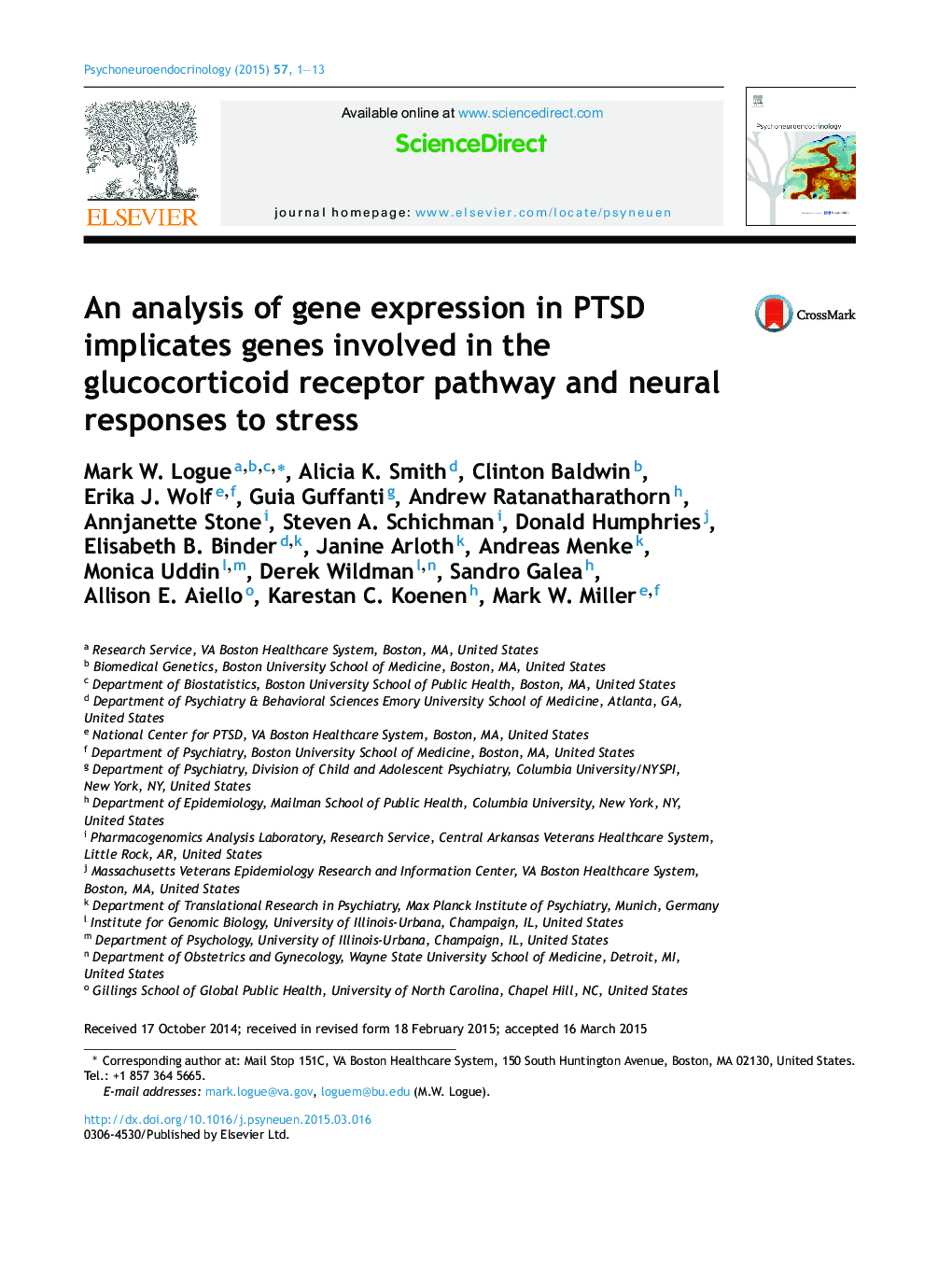| Article ID | Journal | Published Year | Pages | File Type |
|---|---|---|---|---|
| 335644 | Psychoneuroendocrinology | 2015 | 13 Pages |
•This is the largest genome-wide PTSD gene expression study conducted to date.•We identify a novel set of genes whose expression was associated with PTSD.•We obtained evidence of replication from two additional samples.•These genes are related to glucocorticoid receptor (GR) signaling.•Examining these genes may lead to biomarkers of PTSD and targets for treatment.
SummaryWe examined the association between posttraumatic stress disorder (PTSD) and gene expression using whole blood samples from a cohort of trauma-exposed white non-Hispanic male veterans (115 cases and 28 controls). 10,264 probes of genes and gene transcripts were analyzed. We found 41 that were differentially expressed in PTSD cases versus controls (multiple-testing corrected p < 0.05). The most significant was DSCAM, a neurological gene expressed widely in the developing brain and in the amygdala and hippocampus of the adult brain. We then examined the 41 differentially expressed genes in a meta-analysis using two replication cohorts and found significant associations with PTSD for 7 of the 41 (p < 0.05), one of which (ATP6AP1L) survived multiple-testing correction. There was also broad evidence of overlap across the discovery and replication samples for the entire set of genes implicated in the discovery data based on the direction of effect and an enrichment of p < 0.05 significant probes beyond what would be expected under the null. Finally, we found that the set of differentially expressed genes from the discovery sample was enriched for genes responsive to glucocorticoid signaling with most showing reduced expression in PTSD cases compared to controls.
